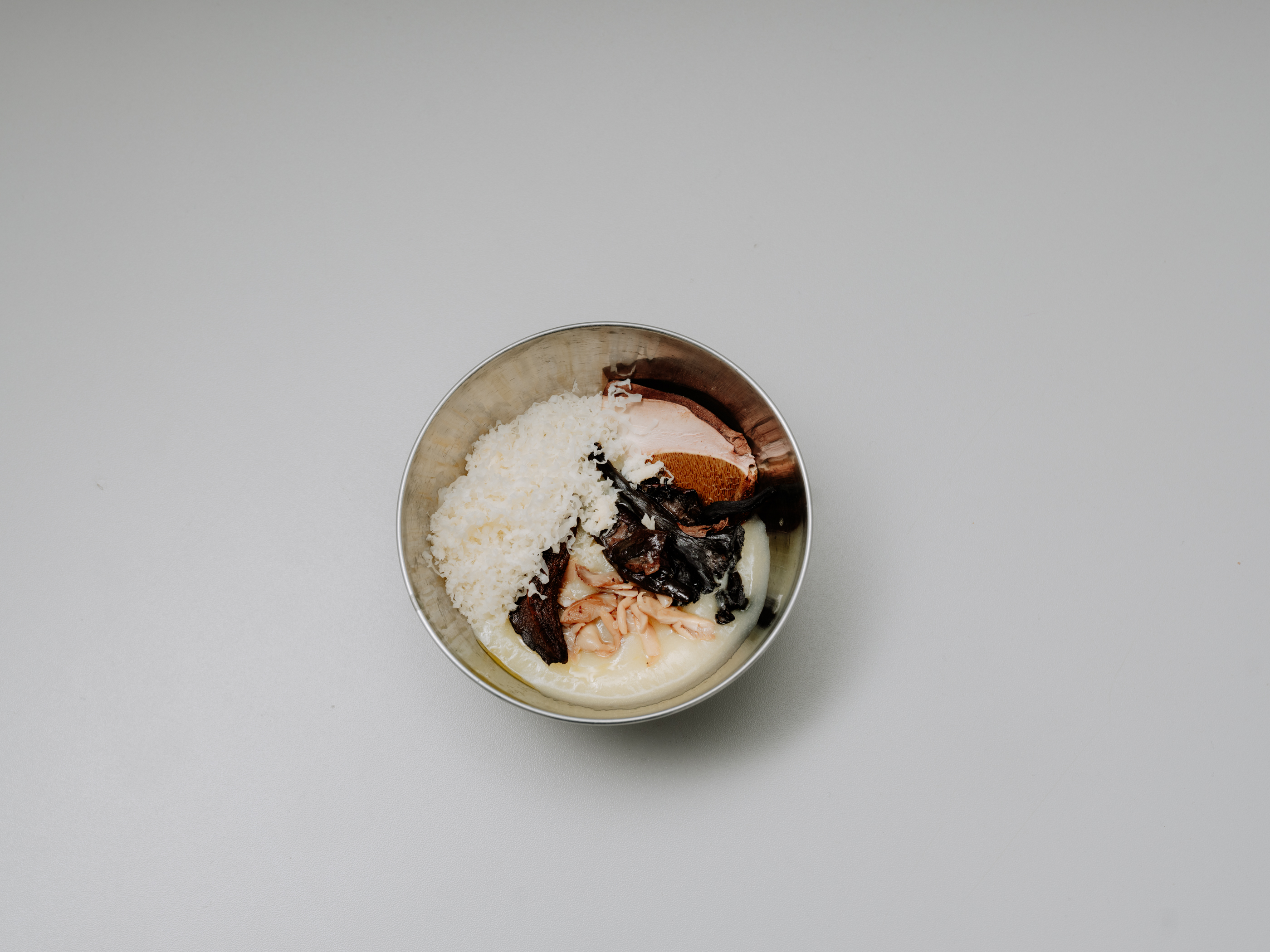Potato Cream, Mushrooms and Sheep Cheese
The project Salt Dykes is a serious invitation to let the imagination (the capability to generate images as a tool for learning and forming) be dragged on the other side of the membrane, to make culture permeable and adapt it to changing, non-linear, non-dichotomous conditions.
The menu is an exercise to the taste as a means to defy the general understanding or practicing of spaces and edibility, hence the paradox. Recipes records no weight or measures, no procedural or serving hints but a way to think about ingredients and reframe their value as such.

potato cream- it is the staple food, just great on a cold winter day. Just add butter, loads.
German farmers have great potatoes apparently and good butter, someone would call it a national dish. Hamburg guides laud potato salads and fried sliced potatoes served with that remoulade sauce mentioned before. They are originally from the Andean region and took centuries to be accepted as food in Europe where they were associated with sorcery and Satan himself. The fact that the potato is not mentioned in the Bible has been a deterrent to the consumption of this root for a ridiculously long time. If someone would still doubt the role that culture plays in defining what is edible and what is not.
mushroom- mushrooms have a realms on their own, meaning they are neither animals nor plants. Creative theories even suggest they are alien creatures coming from other planets. There are hundreds of species, but only a fraction is consumed despite very few being actually poisonous. Still, never trust your instinct on this. Most people only eat three to five species of mushroom, in this dish there are like seven, but if you get the chance go mushroom picking with a mycologist. These creatures can take shapes like nothing you can think of and have unbelievable features. Mushrooms are said to be growing anywhere and they are the first creature colonising sites of disaster where nothing else could grow. They are considered a traditional food in the Alps, an unavoidable element of the stereotypical mountain cuisine. In the Dolomites people only learned they were edible during the war, looking at Russian prisoners searching the undergrowth for food.
sheep cheese- semi-aged cheese, at least six months would do, grated all over the potato cream and mushrooms. This is a cheese from sheeps that are left free to graze on the dykes and banks of the Elbe river. They maintain the pasture promoting the growth of grass that prevents erosion with its roots without compacting but rather aerating the soil with their roaming. Grazing on salty pastures is used also elsewhere in coastal areas and marshes, mainly with smaller animals such as sheeps, but we’ve also seen cattles on the coast North of Hamburg. Till around sixty years ago dykes in the region were considered a common by the law, everyone was called to take care of them. It meant they could also be used as a public space and it would then be common to see animal grazing or orchards planted on dykes and dams. From 1962 they became a state infrastructure to which the access in interdict.
